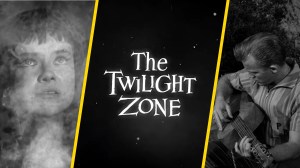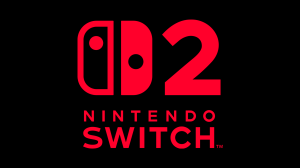For over sixty years, The Twilight Zone has been one of the premier genre brands and a quintessential piece of television history. The Rod Serling-created series premiered back in 1959 and immediately made a name for itself not only as one of the most unique shows of the era but one that would influence live-action storytelling on the big and small screens for decades to come. With its trademark twist endings, stories with a deeper meaning, and surprise character appearances, The Twilight Zone has remained a pillar of television and spawned countless imitators (and reboots) in the wake of its success.
Videos by ComicBook.com
With five seasons and over 150 episodes produced in the original series (the reboots add an additional 128 episodes to that tally), Rod Serling and his team were able to create some of the most influential pieces of pop culture that continue to stand the test of time. Not only did the series influence the horror and science fiction genres with how it brought in famous writers and their stories to live-action, but it also gave way to brand new subgenres in each that continue to be explored. Though its success and influence remain remarkable, something that’s especially impressive about The Twilight Zone is how one of its most essential stories premiered very early, and its anniversary happens to be today.
“Time Enough at Last” Remains the Quintessential Twilight Zone Episode
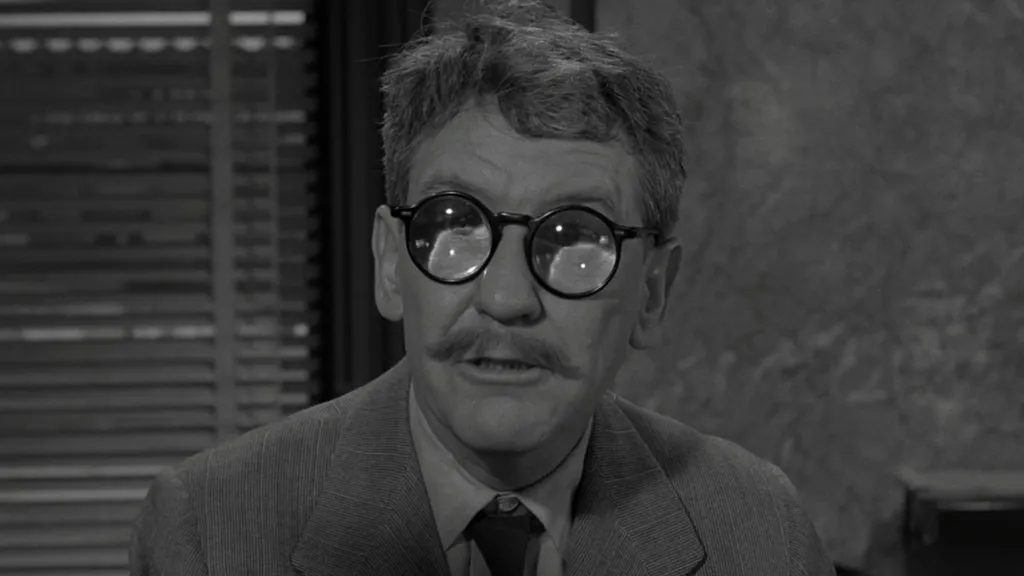
On November 20, 1959, 66 years ago today, “Time Enough at Last,” the eighth episode of The Twilight Zone‘s first season, premiered on CBS. Starring Burgess Meredith, seven years before he would become The Penguin in Adam West’s Batman TV Series, the episode was a hit upon its release and remains one of the most talked about and beloved episodes of the entire series.
Based on the short story by Lynn Venable, “Time Enough at Last” tells the story of Henry Bemis (Meredith), a bookworm banker with a reading obsession. Bemis is not only chastised by his boss for reading on the job and how it affects his work (he miscounts a woman’s bank total as he flips through a copy of David Copperfield in his lap), but also gets no peace at home as his wife largely forbids him from reading for pleasure as well. In a key sequence of the episode, Bemis’ wife allows him to read poetry to her out loud, much to his delight, only for him to open his book and find she’s scribbled on every page with a black marker, making it largely illegible. His life is one where his only joy is denied to him by every corner of existence.
One day, while enjoying his lunch down in the secured vault of the Bank, Bemis finds himself the sole survivor of the ultimate evil of the era, the H-Bomb, even reading about it in the newspaper just before it goes off and annihilates the town that he lives in. After he returns to the surface, Bemis finds himself entirely alone, the world largely destroyed, and no other humans around to keep him company (though a great jump scare happens when a recording of his boss has him briefly believe everything is fine).
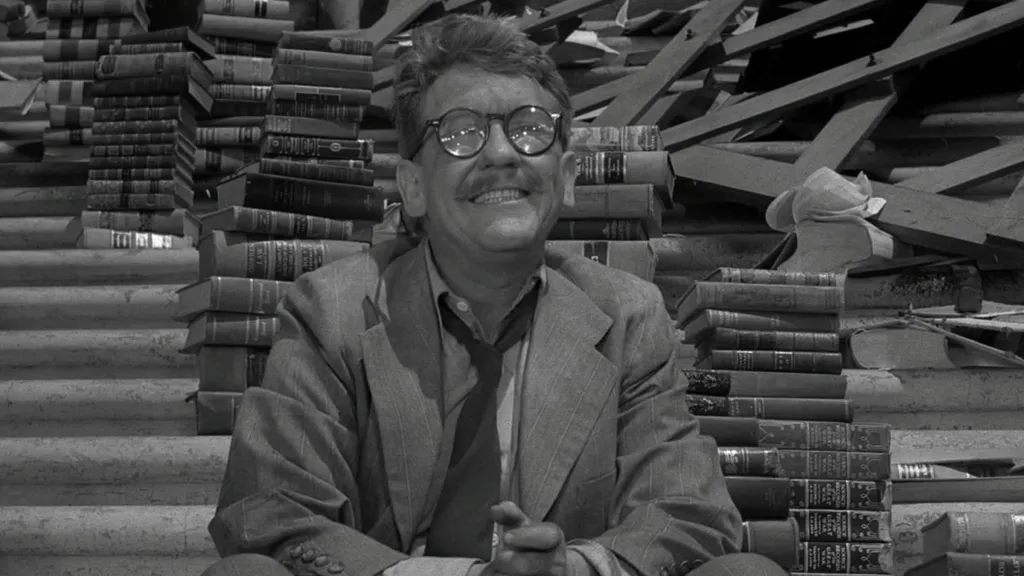
Though Bemis wrestles with the idea of not even wanting to be alive in a world where he is alone, he considers ending it all until he realizes the public library is right in front of him, and it has all of its books mostly intact. Henry Bemis officially has all the time in the world to read every book he could ever want, and he makes stacks planning out the next months and years of his life with all the books he intends to read. As he sits down to begin, though, he stumbles, cracking his glasses and leaving him not only the last man on Earth, but one who still can’t enjoy the one thing he loves most in life.
“It’s not fair,” he selfishly laments, standing in the rubble of a city once vibrant with life and home to countless people with their own hopes, desires, ambitions, and even hobbies. Henry Bemis’ selfishness and grand scheme made him a prime target for The Twilight Zone, and Serling’s final narration brings it all home with its opening line, “The best-laid plans of mice and men … and Henry Bemis.”
The Twilight Zone‘s Best Episodes Have Two Major Things in Common
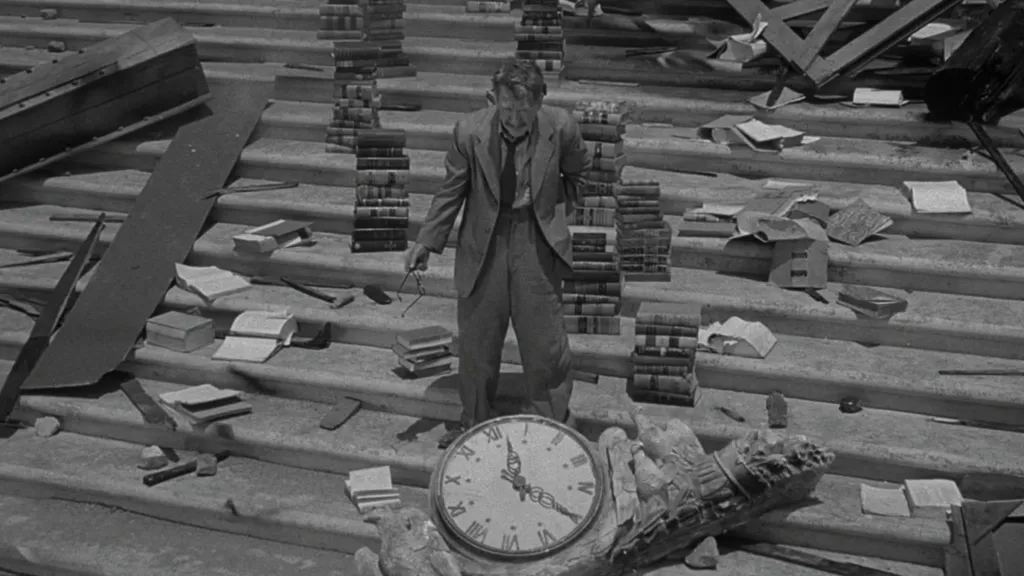
“Time Enough at Last” was an instant hit upon its release and its legacy within The Twilight Zone remains steadfast today. On IMDB, the episode ranks as the #4 of all-time across the series with an average rating of 8.9 out of 10 with over 8.8k ratings by users (the three episodes ranked higher all have a 9.0 or 9.1, but even fewer total ratings).
So what makes “Time Enough at Last” stand out and endure as one of the best episodes of the series? There are two major things that not only make this episode work, but which offer a clear blueprint for the very best episode of The Twilight Zone as a whole. The first is the quickness of the story development in the episode; the best episodes of The Twilight Zone set up a clear, concise story with a relatable protagonist incredibly quickly, and what separates “Time Enough at Last” from other episodes is that it largely manages to do this without the help of Serling’s signature narration.
Of course, the dulcet tones of The Twilight Zone creator can be heard in the episode, not only at the start and ending but even in the middle, but Serling had yet to actually start appearing in the episodes. Though he does offer a bit of additional context to the larger story, the narrative and lead character of “Time Enough at Last” are clear from the start.
One of the first images of the episode is Bemis’ gigantic eyes, which are magnified by the tremendous lenses within his glasses, but also his glowing smile as he flips through the pages of his book. These images quickly tell us everything we need to know about Henry Bemis as a man, including not only his likes but how those accentuate his flaws. Even before he gets chastised by his boss for reading on the job, we know exactly who he is.
The second major thing that “Time Enough at Last” has that defines great episodes of The Twilight Zone is that the gut-punch twist ending is not broadcast by the larger set-up. Though the conclusion always arrives and knocks the wind out of the audience, thanks to a swing from the sickle of irony, it’s never immediately clear how the story will wrap up even as its conflict and lead are quickly revealed to the world.
This is what makes “Time Enough at Last” endure as one of the very best episodes of The Twilight Zone; its concise storytelling and spellbinding performance from its lead actor make it immediately memorable. The episode manages to pack so much narrative into its brief runtime and leave the audience stunned by its conclusion. It’s been over six decades since this episode premiered, and it’s arguably among the very best from this stories franchise, and maybe one it’s never been able to top.

